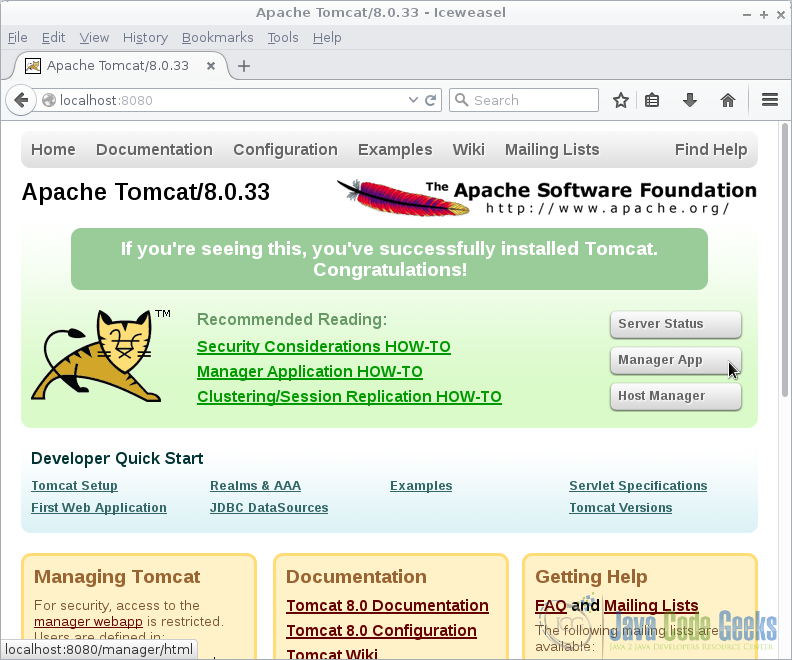

The older JSP servlet is deleted once the new JSP servlet has finished being recompiled.

Background JSP compilation – While recompiling modified JSP Java code, the older version is still available for server requests.Tag handler class objects can be pooled and reused in the whole JSP servlet. JSP Tag library pooling – Each tag markup in JSP file is handled by a tag handler class.From Jasper to Jasper 2, important features were added: At runtime, Jasper detects changes to JSP files and recompiles them.Īs of version 5, Tomcat uses Jasper 2, which is an implementation of the Sun Microsystems' JSP 2.0 specification. Jasper parses JSP files to compile them into Java code as servlets (that can be handled by Catalina). Another Coyote Connector, Coyote JK, listens similarly but instead forwards its requests to another web server, such as Apache, using the JK Protocol. Coyote listens for incoming connections to the server on a specific TCP port and forwards the request to the Tomcat Engine to process the request and send back a response to the requesting client. This allows Catalina, nominally a Java Servlet or JSP container, to also act as a plain web server that serves local files as HTTP documents. Coyote Ĭoyote is a Connector component for Tomcat that supports the HTTP 1.1 and 2 protocol as a web server. Different implementations of Realm allow Catalina to be integrated into environments where such authentication information is already being created and maintained, and then use that information to implement Container Managed Security as described in the Servlet Specification. In Tomcat, a Realm element represents a "database" of usernames, passwords, and roles (similar to Unix groups) assigned to those users. Catalina implements Sun Microsystems' specifications for servlet and JavaServer Pages (JSP). Tomcat 4.x was released with Catalina (a servlet container), Coyote (an HTTP connector) and Jasper (a JSP engine).Ĭatalina is Tomcat's servlet container.

Tomcat is developed and maintained by an open community of developers under the auspices of the Apache Software Foundation, released under the Apache License 2.0 license.

Thus it is a Java web application server, although not a full JEE application server. It provides a "pure Java" HTTP web server environment in which Java code can also run. Apache Tomcat (called "Tomcat" for short) is a free and open-source implementation of the Jakarta Servlet, Jakarta Expression Language, and WebSocket technologies.


 0 kommentar(er)
0 kommentar(er)
